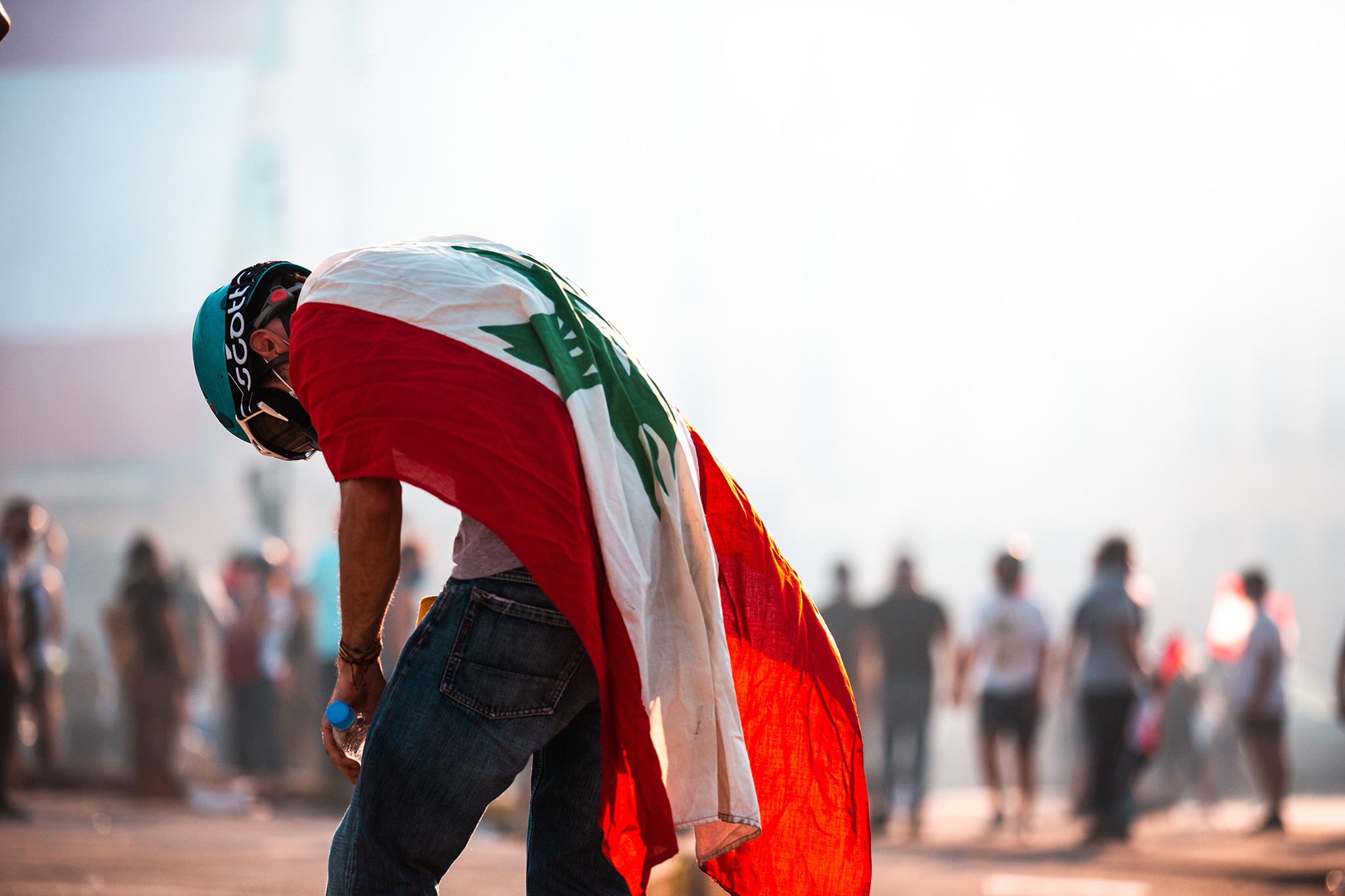The massive ammonium nitrate explosion that killed more than 200 people in Beirut, rocked all of Lebanon. Protestors quickly took to the streets with the same message they chanted during last October’s revolution: “keloun yeni keloun” – all means all.
This time their actions met their mark. Cabinet ministers resigned, closely followed by Lebanese Prime Minister Hassan Diab who acknowledged the circumstances that led to the blast were the result of “endemic corruption”.
But for the Parliament to dissolve, President Michael Aoun must call early elections. His term doesn’t expire until 2022.
On the streets, protestors are calling for the resignation of every political leader, but their cries and chants are being met with tear gas and, as authorities would have the world believe, rubber bullets. In this Facebook post, protestor Majd Monther describes how those bullets were very real.
لكل حدا عم بقول انو ما كان في رصاص حي بالساحات هذا الفيديو كفيل انو ينقل الصورة.الثائر مجد منذر من قلب مستشفى الجامعة الأمريكية، بعد أصابته بالرصاص الحي في ساقه.
Posted by Rafif Souny on Sunday, 9 August 2020
“Yesterday live bullets were coming down on people like rain. I just came out of surgery, the nurses removed a bullet from my leg that is now broken from the impact.”
In a live report for CBC, Lebanese-American political activist Jude Chehab, said: “everyone is angry and fed up, it’s so emotional to see because with everything that’s happened in the past few days, people still have the energy to come down here and demand their rights.”
In one of Chehab’s Instagram Stories, a taxi driver said: “They don’t deserve to be met with bullets and teargas. It’s as though the police officer shooting at us didn’t have a family member who was killed by the explosion.”

(Photo: Ihab Fayad)
Two days ago, fliers were being handed out in Beirut announcing a public lynching.
Nooses were hung all over the city as a symbol of protestors’ demands for public accountability and the death of corruption. Some even carried nooses as props, showing they hold no loyalty to any party.
Since French occupation, Lebanon’s political system has been divided by religion.
Protestors last year were demanding the removal of this sectarian system, claiming it has led the country astray.
According to Dr Mariam Farida, a Middle East Expert at UNSW: “A sectarian system has led to a high level of nepotism and corruption, leaving principles of democracy to have no place in Lebanon’s institutions.”
In the past year, the people of Lebanon have endured forest fires, a revolution against political corruption that was cut short due to the COVID-19 pandemic, economic downfall and now an explosion in the capital.
“It’s hard to know the next step, people are asking for transparent elections and systemic change.”
“The world should see it as a sign of desperation,” Dr Farida said. “Some members of the Lebanese community would rather be living in a colonial state than under the current thugs that run the government.”
A CITY RALLIES
After the blast shattered their city, Beirut residents rallied to remove debris from the streets and distribute food and clothing packages.
Taxis offers free rides for people travelling to hospitals to donate blood, and hotels offered rooms for those left homeless.
Many went to the Port with search-parties, but were denied access – only to leave frustrated that current recovery efforts are confined to a few hours throughout the day.
“If any minister had lost their child, they would work day and night to find them,” Mira Chedid, a law student in Beirut, said.
“I don’t know why they weren’t allowing people to search at the Port. It took three days for the officials searching to find the first responders who went in to put out the initial fire.”
“Many others are still missing. It’s just trauma on trauma.”
Lebanese people in the diaspora reacted to the horrific news immediately, spreading awareness on online platforms and initiating fundraisers. Among them, 230,000 Lebanese-Australians.
AUSTRALIAN AID
Houssam Dernaika is one of the co-founders of the Australian Lebanese United Movement.
“Regardless of the distance between us, our hearts cry for the people who are injured or killed because they are refusing to live under the sectarianism, corruption and nepotism,” she said.
Dania Hawat is another co-founder of ALUM who helped organise protests in Australia during last October’s revolution.
“It’s painful to be on the outside looking in,” she said.
“At every point of our day we are one click away from booking a ticket back home because there is so much to be done.
“But even if we do, how many of us can stay? What future awaits? Those who robbed us of it the first time are still there.
“This explosion should have never happened and now, more than ever, we need the support of the international community.
“We need to maintain our resilience and our rage.”
In addition to community fundraising campaigns, the Australian government has responded with aid.
Originally two million dollars was offered to help with recovery efforts, but after a global conference hosted by French President Macron and the UN Secretary-General António Guterres, this figure was raised to five million dollars.
If you would like to make a donation to the people of Beirut via an Australian charity, you can do so through: Human Appeal, Muslim Aid Australia and CARE Lebaonon. International NGOs are also providing relief .
— Story and interviews, Suzy Monzer @suzy_monzer
*Photos have been re-published with the permission of Ihab Fayad in Beirut.


































